Sir Syed Ahmed Khan: A Catalyst for Promotion and Renaissance of the Urdu Language
In 1857, a significant event triggered a remarkable shift in the world of language and literature. Before the Indian War of Independence that year, literature in India was deeply rooted in various regional societies, with poets and literary figures enjoying admiration. Urdu literature, influenced by the prevailing feudal system, had its own unique character, featuring captivating stories, epic tales, love stories, and poetry filled with vivid imagery. However, the 1857 War of Independence brought new challenges and ideas, setting the stage for a new era in Indian literature. To be precise, writers and poets embarked on a literary revival with a focus on social awareness and real-life issues. The names Sir Syed Ahmed Khan, Hali, Azad, and Nazir stand out in this literary movement that emerged after the turmoil, kickstarting a fresh chapter in Indian literature.
Among these figures, Sir Syed Ahmed Khan had a particularly profound impact. His progressive thinking reshaped the literary landscape. Although Urdu was widely spoken, Persian still held sway. Sir Syed recognized Urdu's potential, earning him the title "Father of Modern Urdu Prose" through his relentless efforts. Sir Syed's contributions to Urdu were remarkable, as he found new ways to enhance the language. His articles in "Tehzībul Al Akhlāq" and works like ‘Khutbāt e Aḥmadiyyah’ and ‘Asrār Al Sanadīd’ played a pivotal role in standardizing Urdu in India. His influence fostered the growth of Urdu and cemented his position as a key figure in the promotion of the language.
Sir Syed Ahmed Khan
Sir Syed Ahmed Khan, born on October 17, 1817, was a distinguished Indian scholar, visionary reformer, and a key leader during the Indian Revolt against British rule. He emerged from a backdrop of rich traditional Islamic culture, a period marked by the decline of the Mughal empire in India. His unique upbringing, which took place during a time when the Western world was influencing India, had a profound impact on his life and his vision for society. He immersed himself in Western education, mastering not only the English language but also Western sciences, which would significantly shape his future and influence Indian history. His quest for knowledge extended to religious studies, encompassing Arabic, Urdu, the Quran, and Islamic Jurisprudence, molding him into a social reformer and a visionary thinker.
As an educationist, Sir Syed authored numerous books, including "Kalimāt e Haq," "Risālā e Asbāb e Bagāwat e Hind," and "Tafsīr al-Qurān." His ideas were firmly rooted in logic and rationality, challenging societal rituals and traditions that he deemed impractical and illogical. He diligently worked to steer the Muslim community towards embracing modern education and adopting a knowledge-based moral system. Through his written works, he illuminated a path for Muslims to discard outdated practices influenced by religious beliefs and fostered a forward-looking mindset.
Beyond his contributions to education and literature, Sir Syed Ahmed Khan's impact extended to various aspects of society, including language and culture. His efforts sparked a modern movement that encompassed common people, thanks to the fresh ideologies introduced by writers and intellectuals. The pinnacle of his influence can be traced back to 1875 when he established the Mohammedan Anglo Oriental College, later known as Madrasatul Uloom Musalmanan e Hind. This institution became a bastion of modern knowledge and thinking, offering a blend of both Eastern and Western education. Sir Syed's vision spurred countless poets and writers to join this intellectual movement. Numerous essays, articles, and books were published to reform society. This movement left an indelible mark on Eastern culture, particularly in the realm of literature. He also played a pivotal role in promoting Urdu journalism, founding journals such as "Sayyidul Akhbār," "Tehzīb Al Akhlāq," "Aligarh Institute Gazette," and "Risāla Khair Khaw-e Musalmanān."
Approaches to promote Urdu
Sir Syed Ahmed had his effort in enriching the Urdu language and literature. He led more journals and magazines which used to translate the Western works into Urdu language. He developed schools which promoted the Urdu Language. He preserved Urdu to be the lingua franca and he led the Hindi movement for encouraging Urdu to be the identity of all Indian Muslims. He worked with his colleagues Muhsin Al Mulk and Abdul Haq to develop the Sho’ba e Taraqqi e Urdu. He also established Madrasa for developing Farsi Language and Victoria School in Ghazipur.
Tehzib Al Akhlaq
‘Tehzīb Al Akhlāq’ is an Urdu journal which was published during the colonial period in India by Sir Syed Ahmed, 1871. He was most inspired by the periodicals in England, the Tatler and the Spectator. Tehzīb Al Akhlāq justified each and every issue, from the religious matters to literary works including the social aspects, politics, and educational problems. Sir Syed Ahmed promoted the journal by making the language simple and easy for the readers. It published articles which concern social reform among the people. Articles on rasm o riwaj (rituals) such as “Uncivilized Country and Uncivilized Government”, talked about social dignity, justice and equality etc. He had played a new style of writing in Urdu Language which the other scholars hadn’t done before. He introduced the simplest way of academic writing not to put his readers in awe. ‘Tehzīb Al Akhlāq is known to be the crossroad in Urdu literature which gave importance to the modern Urdu prose. After this journal, Urdu language got a special concept in journalism.
The Aligarh Institute Gazette
Sir Syed Ahmed possessed a keen understanding of society and recognized the absence of contemporary education within the populace. Therefore, he planned some educational programs which can uplift the backward community. As he planned, he started a school based on the language including Persian, Urdu, Arabic and English in Moradabad in 1859. As he was transferred to Ghazipur in 1862, he started another school known as Madrasa Ghazipur where students learn different languages. At last in 1864, he put a foundation for scientific society which used to translate books from English to Urdu. The main purpose of this magazine is learning English. Later, in 1866 a journal was issued by the society named as Aligarh Institute Gazette. This was published both in Urdu and English languages. This journal played a great role to remove the misapprehension between the Indian and the British.
Sayyid Al Akhbār
‘Sayyid Al Akhbār’ was a critical newspaper started by Syed Ahmed and his brother Syed Muhammad Khan. After his brother passed away, Sir Syed planned to publish this magazine through the press known to be Lithographic Press in 1848. As an alternative, this magazine started and gradually published the works of poets and scholars. It witnessed that the emergence of the magazine as well as the press played a great role in Urdu Literature in publishing different books and articles. Sir Syed Ahmed became the first to uphold Urdu journalism.
Risāla Khair Khaw-e Musalmanān
Sir Syed Ahmed Khan's "Risāla Khair Khaw-e Musalmanān" stands as a bilingual leaflet series, a testament to the courage of those who resisted British colonial rule. Comprising three issues, this publication delves into the concept of Jihad and meticulously distinguishes it from a mere revolt. While the content speaks for itself, additional context regarding its significance and historical impact would be beneficial if available.
Anjuman e Taraqqi e Urdu
In his quest to promote the Urdu language and its literature during the British colonial era, Sir Syed Ahmed Khan, along with Nawab Muhsin Al Mulk, established the All India Muslim Educational Conference in 1886. This platform served as a vital discussion forum for addressing the challenges facing the Muslim community in India. During a significant conference session in 1903, the focus shifted to "Sho;ba e Taraqqi e Urdu" or the Department for the Progress of Urdu. This department later evolved into "Anjuman e Taraqqi e Urdu." Allama Shibli Nomani served as the first secretary, while Abul Kalam Azad, then the Education Minister of India, took on the role of assistant secretary.
This organization dedicated itself to championing the Urdu language and its literary heritage. It played a crucial role in nurturing and advancing Urdu literature during a challenging period in India's history, ensuring the continued significance of Urdu in the nation's cultural landscape.
References
Abbas, D. T. (n.d.). Revival of Urdu Language & Sir Syed Ahmad Khan. p. 6.
Alam, M. I. (n.d.). Sir Syed Ahmad Khan’s contribution to Urdu & Persian Literature. Langat Singh College.
Azeemuddin, M. (2015). Sir Sayyad Ahmad Khan: The Editor and Journalist. International Journal of All Research Education and Scientific Methods.
Dissensu, C. (2017). Sir Syed, Urdu, and Tehzeeb-ul-Akhlaq.
Hasan, D. M. (2022). Sir Syed Ahmad Khan and his Contributions: An Essay. International Journal For Innovative Research In Multidisciplinary Field, p. 3.
Hassaan, R. B. (1959). The Educational Movement Of Sir Syed Ahmed Khan.
Muhammad Afzal Butt, M. S. (2018). Effects of Sir Syed Movement on Indian Literature and Society: A Guiding Principle for Social Awareness. Orient Research Journal of Social Sciences, 12.
Samia Jamshed, S. R. (n.d.). Writings Of Syed Ahmed Khan And Impact On Muslim Nationalism. Pakistan Journal of Social Research, 8.
About the author:
Mohamed Thaha is a PG scholar at the Department of Quran and Related Sciences, Darul Huda Islamic University, Kerala. He is from Chennai, Tamil Nadu.
Disclaimer
The views expressed in this article are the author’s own and do not necessarily mirror Islamonweb’s editorial stance.

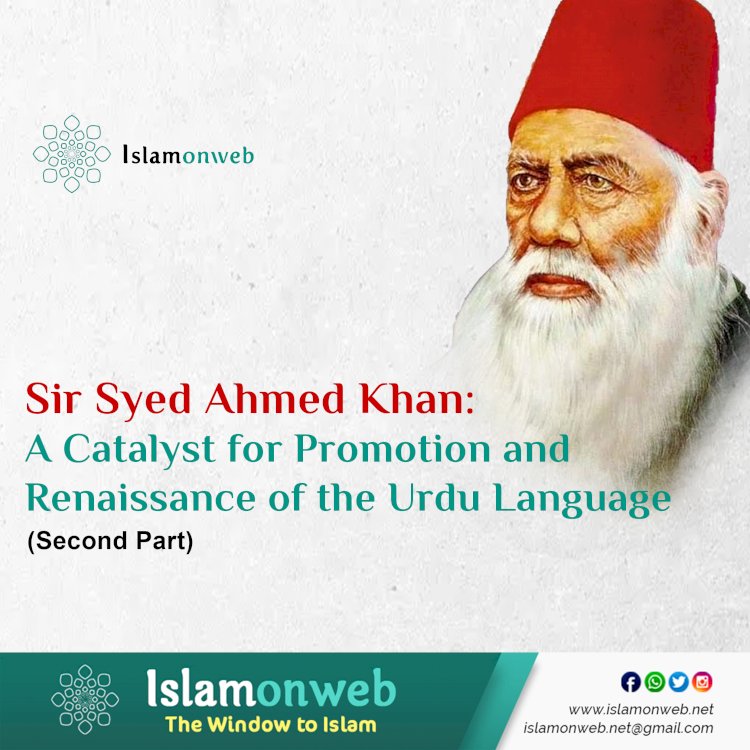


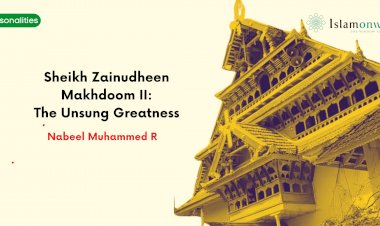

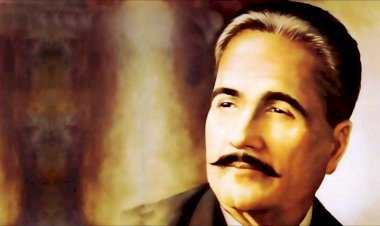
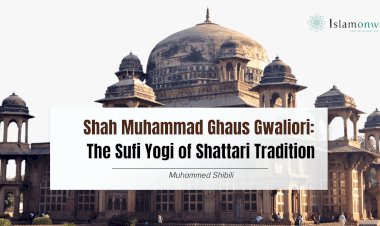

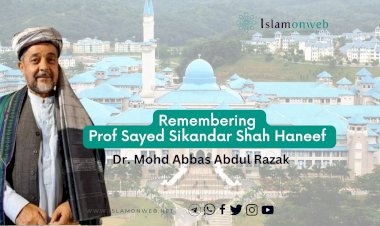














Leave A Comment